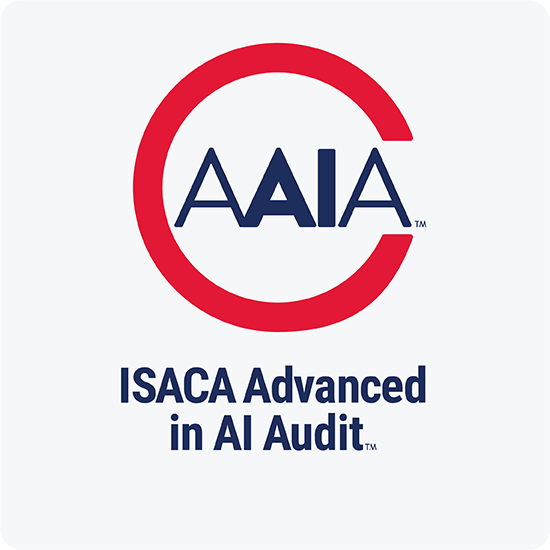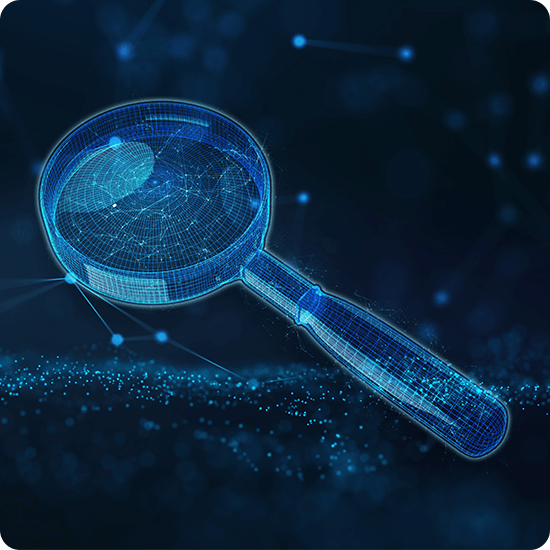



Artificial intelligence has significantly accelerated the pace of change across all segments of the business technology landscape, including the audit and assurance world. Professional growth and career advancement requires all of us to enhance our job performance and the adaptability in each of our industries and the services we provide as IT assurance and advisory professionals.
The past decade has accelerated the trajectory of technical and developmental skills we had to adapt to – cloud transformation, automation, analytics, regulatory compliance and, now, fast-paced AI impact. As we focus on these areas, this has and can help us all significantly enhance and grow our audit career through the capabilities we develop in the emerging IT knowledge landscape of AI.
Let’s explore some of the evolving connection points between AI and the audit profession.
Types of Artificial Intelligence
We all have come across technology that technically is not AI but is still referred to that way. A robotic process automation (RPA) embedded with a few rules does not make it truly AI. It is important to set ground rules in terms of identifying or defining what AI means in the context of an audit professional.
- AI as large-scale language models: both open (DeepSeek Coder, Llama2) and closed (GPT Family)
- AI as a deep learning apparatus: A type of machine learning, but utilizing trained and self-trained learning, performing tasks and recommending solutions (for example, an audit work program creation using past audit reports, work programs/work papers and additional documents and data)
- AI as a machine learning mechanism: Machine learning using data and dividend yielding operational decision-making capacity (such as Amazon Alexa or Apple Siri)
- AI is capable of being ‘X’: Digital twin workforce multiplier, self-driving, etc.
As auditors, we have to consider what are the various areas of AI technologies we should focus on. There is no silver bullet answer. However, based on my experience with RPA to automate repetitive tasks, my use of Computer Visio/Optical Character Recognition Software for analysis of documents (such as purchase orders vs. payment invoices matching), and now with AI – there are helpful specifics we can focus on.
One of the key areas to consider is machine learning, which is useful for further enhancing and building efficiency to the audit profession. The concept of machine learning, which is a type of AI technology, is simple – we can look at large amounts of data for anomaly and predictive analysis for further assessing where to best use data results for the purpose of spending actual hours face-to-face with customers and clients that will lead us to best results due to time well spent on what really matters. Additionally, as we think of financial transactions, which is one of the key areas auditors focus on, whether it is technology or financial controls, there can be a real-time monitoring capability deployed for timely intervention as well as identifying compensating/risk mitigation strategies.
There continues to be very fast-paced adoption in AI. Take for example ChatGPT and other popular GenAI platforms. AI has had major success in adoption due to the availability of the internet, the number of companies pushing out AI features and capabilities, and the younger generation, which is keen to explore new AI territory in social media capacities.

Source: https://www.aiprm.com/chatgpt-statistics/
AI in Auditing: Now and in the Future
The role of the auditor traditionally has been to provide assurance without bias and help reduce negative impacts to the organization. As we think of current auditor skills at a high-level, vs. the future auditor, there are some clear changes we can anticipate across four key areas – Skills, Efficiency, Risk Analysis and Monitoring. The table below highlights some points that can be further assessed and thought through.
| Present Auditor | Future Auditor | |
|---|---|---|
| Skills | Requires strong analytical skills and regulatory mindset | Use of AI tools and which areas can be automated vs. manual or hybrid |
| Efficiency | The manual, human element is high | Data-driven, large matrixed environment of knowledge |
| Risk Analysis | Sampling approach, judgmental | Pattern use, predictability and complex external and internal risk factors |
| Monitoring | Passive, reactive measurements | Proactive measures, embedded controls by design, digital auditor twin |
Auditors Have a Critical Role to Play
There are several opportunities through which the internal audit function can play a role in the AI journey. The adoption of AI continues to accelerate, and more than ever IA has to play a key role as a trusted advisor. The AI governance framework typically is set up with the support and leadership cross functional areas – Legal, Technology, Business Operations, Commercial and HR. Of course, depending on the industry, there can be many more functions involved. IA has to ensure there is a level of governance and insight that can be provided as long as independence is not impacted. Providing insight and guidance from a controls perspective is critical as companies embark on developing and/or using their own AI tools and technologies.
As AI is rolled out in organizations, the role IA can play is critical in terms of ensuring there is top-down leadership as well as staff level engagement. The CAE should be connecting with the board and the Audit Committee in terms of the approach IA will take for developing the department utilizing AI as a value driver, but also providing a roadmap of how IA will be overseeing the roll-out of AI by being part of the overall strategic process and providing both advisory and assurance services to the organization. It is important to ensure trusted partnership is established not through coming in as an auditor, but rather, as a partner supporting this challenging and amazing opportunity organizations are working with. There are of course opportunities to push for an audit early on before the first use case comes out, but this is where IA has to ensure they have a seat at the governance level early on as an advisor, all while remaining independent.
The world of AI is one of the areas we are still digesting globally, even as enterprises are looking to adopt it first and ask questions later. As audit professionals, we must first train ourselves on the technology, develop a more robust strategy to become trusted advisors to the business, and formulate a roadmap for audits to help provide the independent coverage the management and board expects IA to provide in this critical juncture of a very powerful technology movement.
